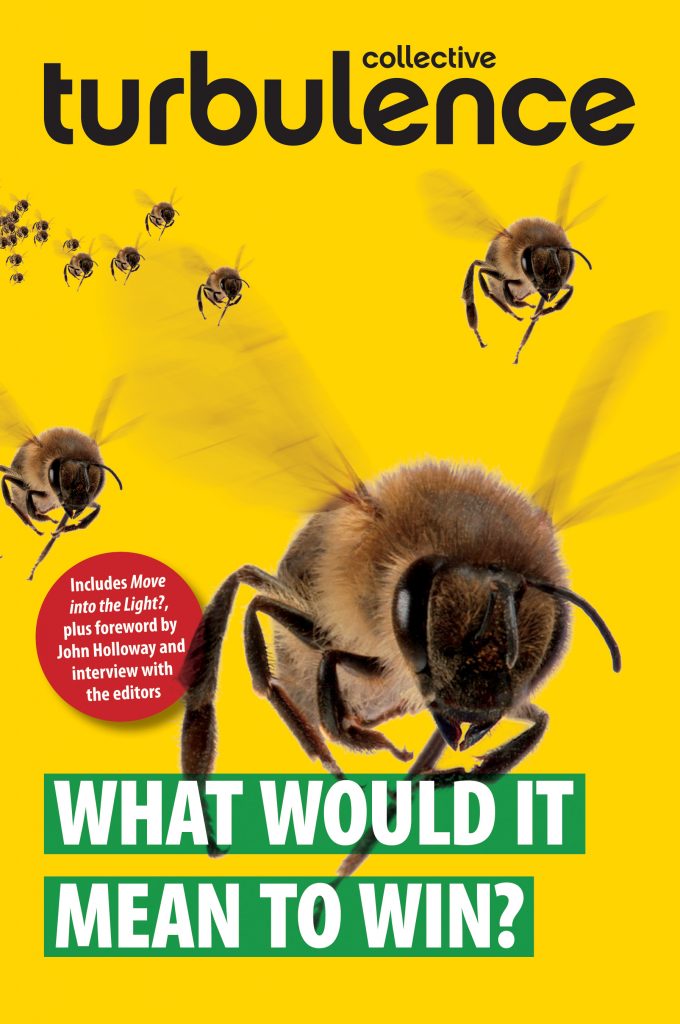by Gavin Grindon
Radical Philosophy Journal 169
September/October 2011
The notion of “inquiry” as a critical practice has its origins in Operaist or more broadly autonomist thought. In arguing that, as opposed to any assumption of a ‘timeless’ notion of working-class identity, a grasp of the composition of working-class movements was crucial, and that bourgeois sociology should not have a monopoly in this area, both Operaists and French and American council communists published examinations of workers’ conditions, such as Daniel Mothe’s dairy of a French autoworker in Socialisme ou Barbarie or the Johnson-Forrest Tendency’s American Worker. More recently, the notion has become popular among Western scholars, artists and activists engaged with social movements in a rather broader sense, though it has often remained more of a proposition than a developed methodology or practice, something suggested by the proliferation of initial terms around militant inquiry, militant investigation, militant research and so on; as well as by various attempts to extend this inquiry not only to particular working conditions but also, for example, to the role of affect, or even sound, in the composition of movements (see, for instance, the work of Ultra Red or the Carrot Workers Collective).
Reclaim the Streets and other groups immediately prior to the current conjuncture produced a number of Reflections on . . . texts inviting and collecting critiques and evaluations of particular actions, but in the present there have been fewer examples of these broadly autonomist ideas being marshaled directly as part of the self-critique and strategy of movements.
In the UK the Free Association have been a notable exception, with five issues of the irregular publication Turbulence: Ideas for Movement, first distributed for free during the mobilization against the G8 in 2007 in Heiligendamm, Germany, and more recently among the UK’s Climate Camp mobilizations. The journal builds a kind of accessible toolkit of post-structuralist materialism which uses broad metaphors (Summits and Plateaus, What Would it Mean to Win?) to open up timely, grounded and practical examinations of the ideas and practices of particular movements. Many of these articles have been collected together in the excellent What Would It Mean to Win?, published by PM Press. (Recently, something similar was attempted by a different group, in the midst of the UK Student Protests, in two issues of a journal simply titled The Paper.) Turbulence’s book springs from a particular moment of crisis, critically examining the state of the anti-globalization movement when it seems to be waning, becoming something else. As such it is far more than a document of the changing ideas, debates and practices of a movement; it offers valuable tools and provocations for the present moment.
In the USA, the collective Team Colors appear to be influences not just by this current of inquiry, but by the particular example of Turbulence, who have a similar political background in autonomous social movements since the 1990s. Unsurprisingly, they thus attempt a similar publishing strategy, transposed into the context of social struggles in the USA, as the metaphorical extension of the book’s subtitle, “movement, movements . . .” suggests. Team Colors have produced a number of articles previously, as well as the pocketbook Winds from Below: Radical Community Organizing to Make a Revolution Possible, but rather than collecting a cumulative series of critical interventions penned by one group and distributed across the sites of particular mobilizations, their latest book functions more as a conceptual overview of movements in the USA; a project both more and less ambitious. Less because it functions as only a single publication, but more because it attempts to use an edited collection of diverse writing to survey a vast area across four thematic sections: Organization Case Studies, Movement Strategies, Theoretical Analyses, and Interviews. The text takes to this difficult task admirably, and rather than Turbulence’s broader and strategically focused conceptual accounts of movements, offers a fascinating comparative survey including older groups such as Roadblock Earth First! Alongside the Starbucks Workers Union, Student/Farmer Alliance, and Picture the Homeless. Perhaps this approach is also—and this is my own European supposition—because these autonomist tendencies are less widespread among movements themselves in the USA, or because across the USA such movements are more diffuse in their focus and strategy, and the text functions partly as a conversation between these tendencies. In either case it is a substantial text that sill manages to include valuable and timely critical reflections on current movement concerns internationally, such as in Daniel Tucker’s account of the work of AREA Chicago on the particular relevance of urban contexts, Getting to Know Your City and the Social Movements That Call it Home, or Chris Carlsson’s essay on the affects of ageing, tiredness and the life of movements, “Radical Patience: Feeling Effective Over the Long Haul.”
Both texts, focusing on the current moment of European and American radical social movements, form not only an impressive and useful document of their changing debates, focus and constitution over the last few years, but more importantly—especially given the recent turn to anti-austerity movements on both continents—offer grounded and practical strategic provocations that consider what we’ve got, and where we go from here.







